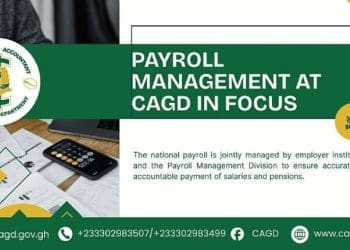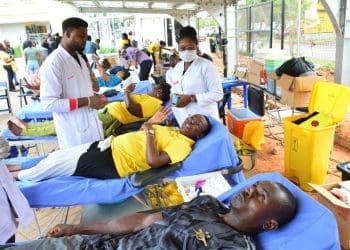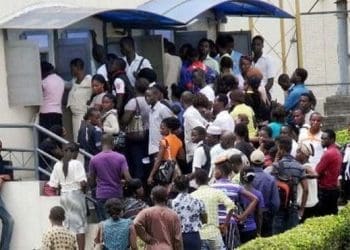The Bank of Ghana (BoG) has formally inaugurated the Bank of Ghana Chair in Finance and Economics at the University of Ghana, cementing what officials described as a “foundational” partnership between academia and central banking.
The event, held at the University of Ghana’s campus, marks a significant milestone in the country’s intellectual and economic development.
Dr. Johnson Asiama, Governor of the BoG, delivered a stirring inaugural speech, emphasising that the initiative is not merely ceremonial, but a strategic investment in Ghana’s future economic leadership.
“The ability to share ideas with academia is not a luxury, it is a necessity,” said Governor Asiama.
“Because policy without intellect is blind, and theory without policy is sterile.”
At the heart of this partnership is a bold vision: to transform the University of Ghana into a hub for cutting-edge research and to shape a new generation of economists, policy strategists, and financial regulators equipped to tackle the complexities of Ghana’s and Africa’s evolving economic landscape.
A platform for policy and progress
The Chair, which will be held by Professor Paul Alagidede, is designed to advance scholarship in critical areas such as inflation dynamics, exchange rate management, digital finance, and financial stability.
According to Asiama, the Chair will act as a catalyst for policy innovation, not just within the confines of lecture halls, but in the real world.
“Let this Chair become a beacon of bold, evidence-based policy thinking that serves both the classroom and the boardroom,” he said.
Dr. Asiama stressed that universities are no longer passive institutions but “idea factories” that must actively shape national direction.
The Chair, he added, is a strategic tool to deepen the central bank’s intellectual reserves and ensure that monetary policy is firmly rooted in data, local context, and research.
From cowries to crypto: The evolution of money
In a deeply reflective address, Dr Asiama traced Ghana’s monetary journey—from barter and cowries to colonial currencies, the birth of the Ghana Cedi, and now the frontier of digital currencies.
He said this evolution symbolises more than technological change—it represents an ongoing struggle for financial sovereignty and trust.
“The introduction of the Ghana Cedi in 1965 was not just a currency change, it was an act of economic self-determination,” he said.
“And today, we are living through another turning point—the digital revolution.”
He outlined BoG’s ongoing efforts to regulate cryptocurrency markets, pilot the e-Cedi, and expand fintech infrastructure while keeping consumer protection and financial stability at the core.
Governor’s fellowship and future economists
In a major announcement, Dr. Asiama launched the Governor’s Future Leaders Fellowship, a new initiative under the Chair’s portfolio aimed at grooming outstanding university graduates for leadership in economics, finance, and public policy.
Fellows will gain access to scholarships, internships, and international exposure, with a commitment to return and contribute to Ghana’s development.
“The objective is clear,” Asiama said. “They will return home. To build. To lead. To ensure that the next chapter of Ghana’s economic transformation is written by Ghanaians who understand both global dynamics and national aspirations.”
A call to action
In his charge to Professor Alagidede, the Governor underscored the gravity of the task ahead.
“You carry not only the responsibility of scholarship, but the burden of relevance,” he declared. “Use this platform to mentor a new generation… who will not only theorise, but act.”
To students, Dr. Asiama issued a passionate call: “Do not sit on the sidelines of national discourse. Debate policy. Ask hard questions. Because economics is a tool for transformation.”
Building the Future of Monetary Policy
With inflation shocks, exchange rate pressures, and the growing digitalisation of finance reshaping Africa’s economic landscape, the Governor emphasised the importance of agile, research-informed policy.
The BoG Chair is expected to help fill knowledge gaps, challenge assumptions, and ensure that Ghana’s monetary system evolves with confidence and credibility.
“Let today mark the beginning of a new intellectual journey, one that will echo far beyond these walls—into policy chambers, financial institutions, and the hearts of young economists still finding their voice,” he concluded.













